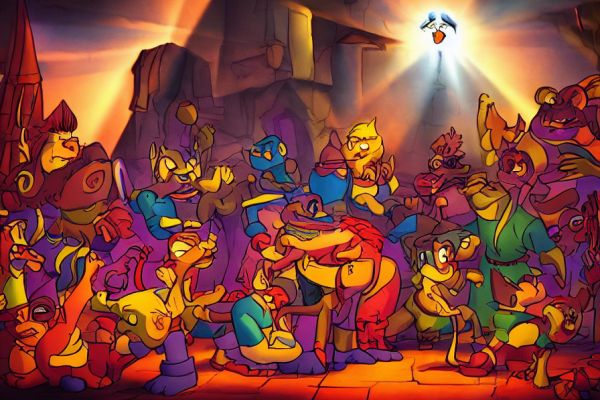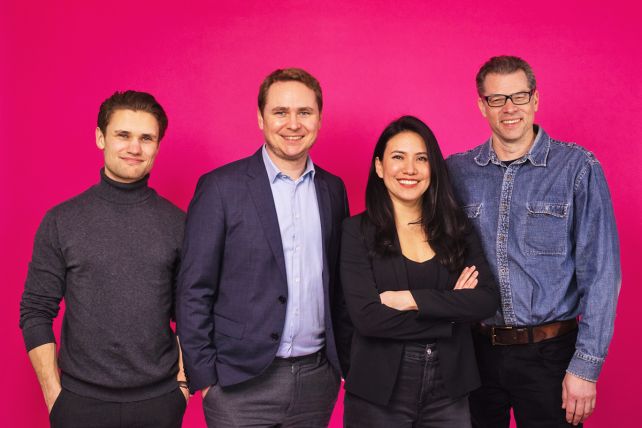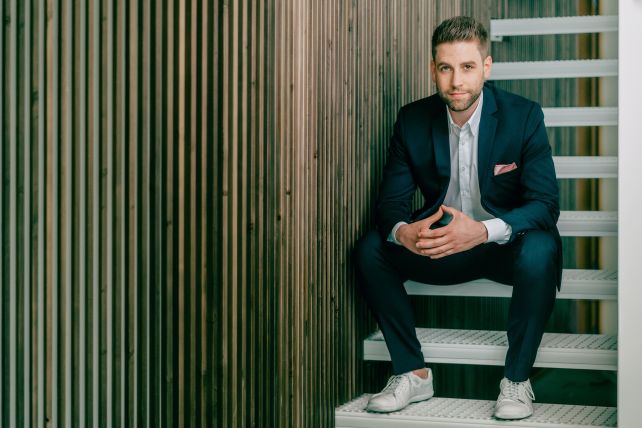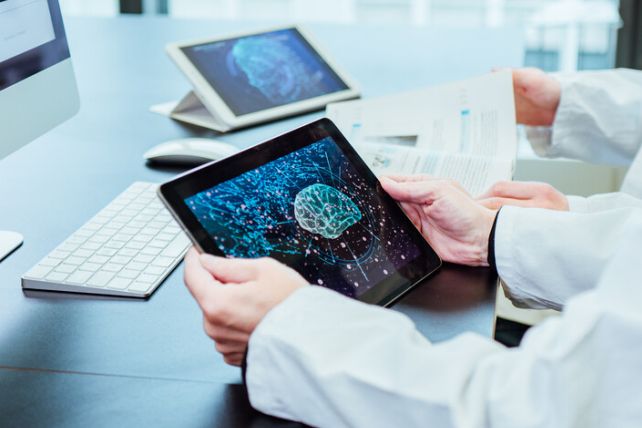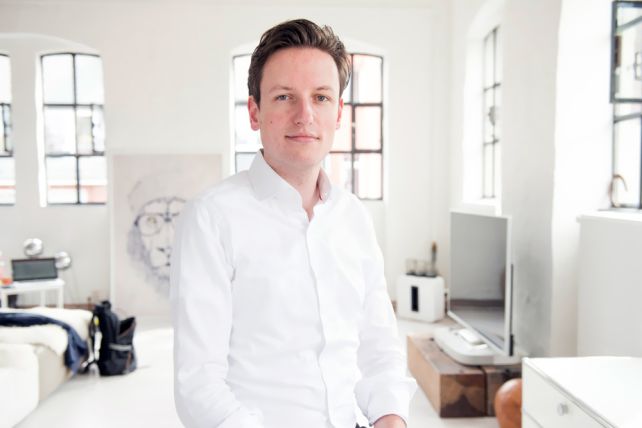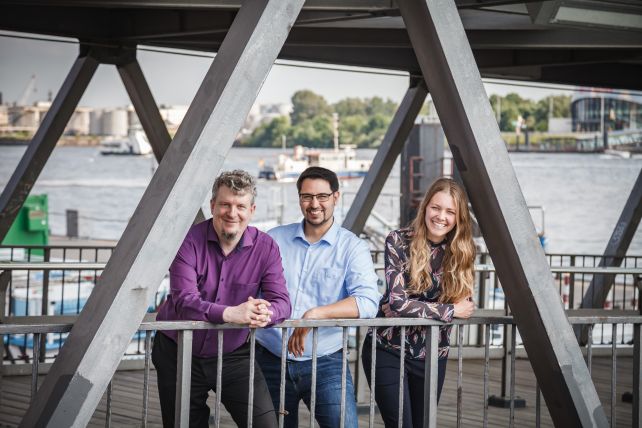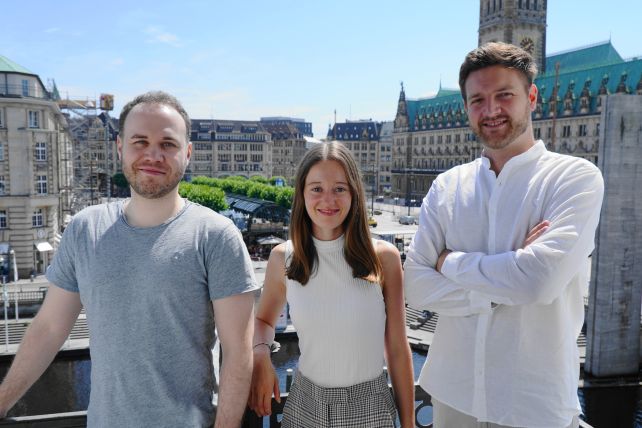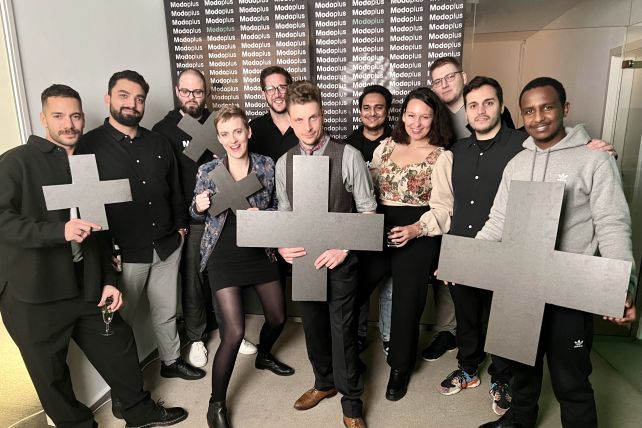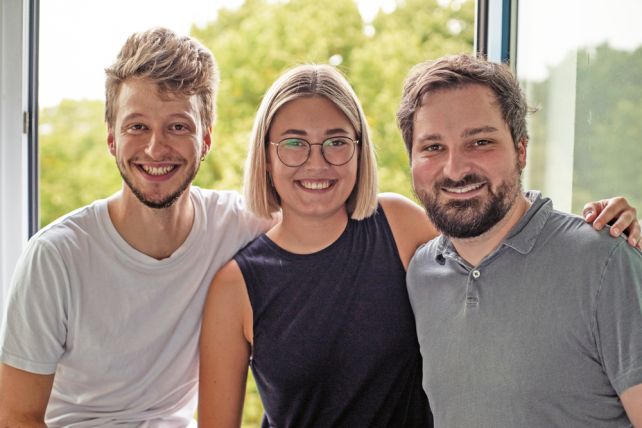When it comes to artificial intelligence (AI), neuroflash is one of the top addresses in Hamburg. Over the course of its history, the startup has revised and expanded its business model several times. By now, it not only helps with the automatic creation of texts, but also generates images with the help of AI.

In the beginning there was a real pivot
Landing one of the coveted spots in the Microsoft Accelerator in Berlin was an important career move for Dr. Jonathan Mall. The neuropsychologist had already gained some experience in marketing, but as a founder he was still at the very beginning. When he joined the accelerator in September 2015, his startup was called Recommend.to and wanted to breathe fresh air into recommendation marketing. At the end of the program in December, Neuro Flash was the company name on Jonathan's business card, and the business model had also changed thoroughly.
One of the specialties of the entrepreneur with scientific expertise affects the question of how people react to certain stimuli and words. A question that also plays a decisive role in the advertising industry when it comes to selecting the most promising text and images for a campaign. Gut feelings and empirical values are just as important as the results of market research. Neuro Flash went one step further and conducted online surveys with over 60,000 participants over a period of one and a half years. The insights gained in the process enabled an in-depth analysis of specific terms in specific text contexts.

Better and better results thanks to AI
In some cases, this led to results that are perplexing at first glance. For example, one would think that the attribute "healthy" would have an unqualified positive connotation. From a medical point of view, this is true, but the situation is somewhat different when it comes to food. A healthy diet is considered a desirable goal, but here the term is indirectly linked to renunciation rather than to joie de vivre. A food product should therefore not only be described as "healthy", but also as "tasty" or "delicious" in order to generate the desired buying impulse.
With such assistance, Neuro Flash was able to demonstrably optimize wordings of advertising messages and win numerous customers. The use of artificial intelligence led to more and more differentiated results and made conventional surveys increasingly superfluous. At the same time, the expansion of AI heralded another change of direction at the startup, which was to go far beyond the evaluation of already existing texts.
OpenAI is an artificial intelligence research laboratory which was founded in 2015 by Elon Musk and others and received a billion-dollar investment from Microsoft in 2019. In 2020, OpenAI released GPT-3, a software language model for creating text that could have been written by a human. GPT-3 is said to have read 10% of the Internet available at the time. No one knows exactly, but in any case the AI behind it processed many millions of texts and generated many billions of parameters. This enables the model to generate complete texts ready for publication, given a few keywords and information.
The news attracted a lot of attention among the AI professionals at Neuro Flash, especially since access to GPT-3 is possible via an interface and thus also a connection with their own software. The first test was the creation of a subject line generator. The quality of a subject line has a significant influence on the opening rate of e-mails sent on a large scale. The generator delivered quite useful results, but it was not enough for a viable business model.

As neuroflash the first round of financing
Even though some of the texts delivered by GPT-3 were described as frighteningly good, as with any AI, the quality of the result depends on the quality of the data input. As far as the quality of texts is concerned, Neuro Flash, as we all know, brings a lot of experience to the table. Or rather, neuroflash GmbH, as the startup has been calling itself since 2021, because the renewed change in the business model was also accompanied by a slight modification of the name.
The new idea of neuroflash: to produce five high-quality text suggestions for direct further processing with a maximum time expenditure of five seconds. After a test phase in the summer of 2021, the startup was able to convince renowned companies such as Telekom, Tesa and Tchibo and to establish strategic partnerships. A number of business angels also became aware of neuroflash, so that a financing round of 800,000 euros could be announced in March 2022. Involved were Michael Diehl, Marcus Hodgkinson and Sebastian Heinz.

Switzerland as the first international foothold
What makes neuroflash special is that it not only helps with text generation, but also validates the suitability of the results. It owes this unique selling point to its previous experience in text analysis. Accordingly, it is not primarily journalists who use the service; the main target group is still the advertising industry and marketing agencies. It is not only large corporations that generate sales, but also many smaller companies, for example in the e-commerce sector, make use of the service.
The text generator, called "magic feather", is available in German, English, French, Spanish, Polish, Italian and Dutch and thus theoretically covers most of the important markets in Europe. However, the focus is still on the DACH region. neuroflash is particularly successful in Switzerland. Customers such as Credit Suisse, Swisscom and Lidl Switzerland are proof of this. Consequently, the Hamburg-based startup founded a branch office in the Alpine country in July 2022. As a special highlight, Swiss High German was added as an extra language on this occasion.
Growth thanks to new functions - and images
For 2023, the management team, which now includes Jens Windel (CEO) and Henrik Roth (CMO) in addition to Jonathan Mall as CIO, has set its sights on opening up additional markets. "We want to become number 1 in Europe and take the lead in quality and technology," says Jens Windel, setting the line of approach. New functions such as an integrated SEO analysis or a plagiarism check should contribute to this.
Perhaps the further expansion will not only succeed with the creation of texts. Often, the procurement of suitable image material, for example for blog articles, is the greater challenge. Here, too, there is now a solution thanks to artificial intelligence. You can register for the test phase at neuroflash, and the first results are already to be admired on the website. The quality of the images suggests that this is a real competitor to the conventional providers of stock photos.
